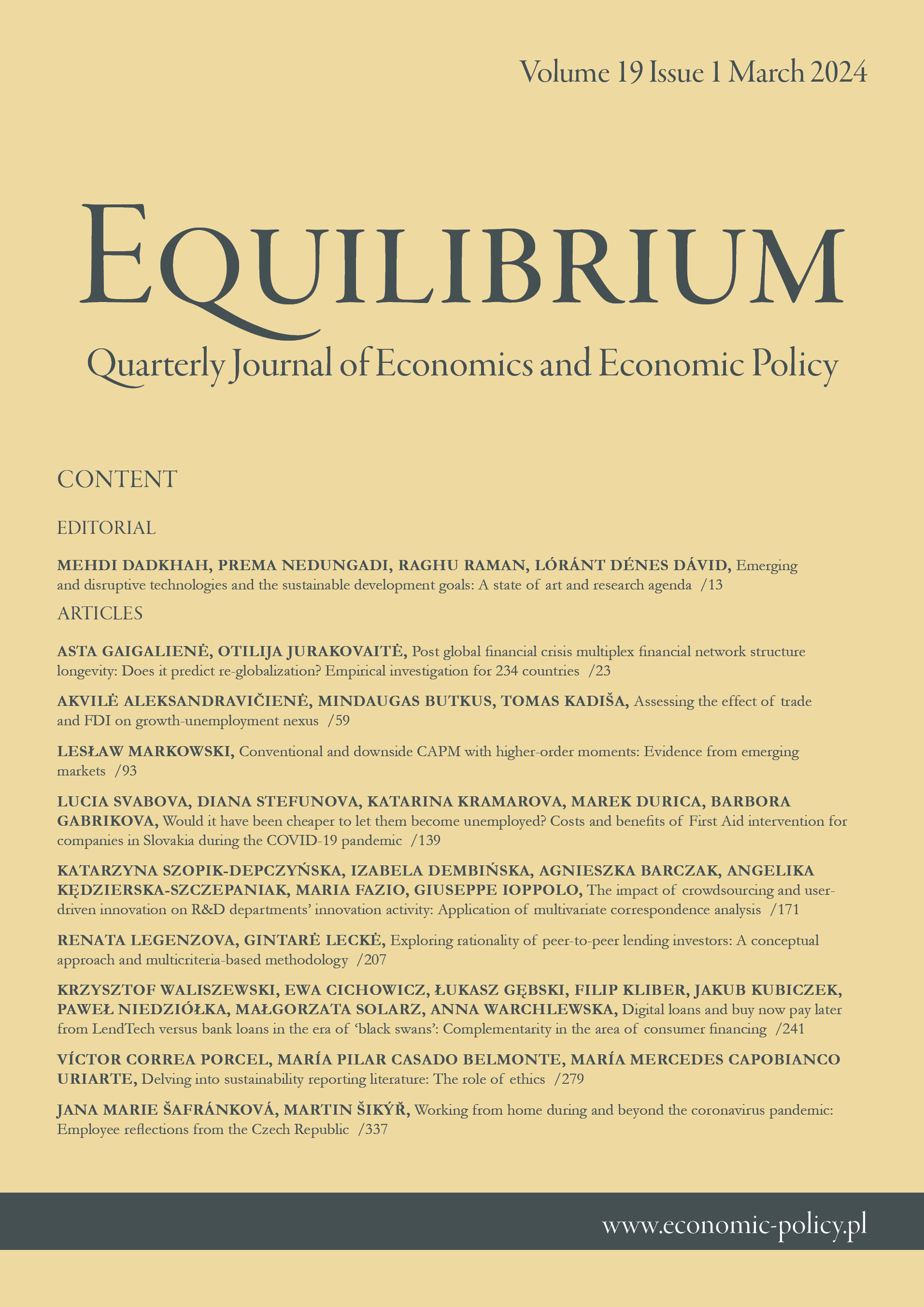外商购买农地过渡期结束后对农地市场的干预
IF 6.2
Q1 ECONOMICS
Equilibrium-Quarterly Journal of Economics and Economic Policy
Pub Date : 2017-03-31
DOI:10.24136/eq.v12i1.9
引用次数: 5
摘要
研究背景:国家干预农业的传统形式包括对所有权的调节。法规中经常讨论的一个方面是对外国人的约束力。文章的目的:文章的目的是分析(欧洲经济和社会委员会和波兰立法者)对外国人购买农业财产现象的立场,以及农民对2016年5月1日结束波兰外国人购买农业财产过渡期对农业土地市场造成的后果的意见。方法:2015年对温姆-马苏里省86名农民进行直接调查。调查结果&增值:在全球和欧洲进行这种讨论的主要原因是过度集中和土地用于非农业用途的现象。鉴于欧洲经济和社会委员会指出,为了限制欧盟成员国的不利做法,应允许旨在防止投机、保护当地传统和确保适当的土地使用权的活动。大多数农民担心外国人购买农用财产过渡期结束后农用土地市场的变化。他们就过渡期具有约束力的规定及其效力发表了意见,强调了上述问题。关于2015年8月5日法案的规定,农民担心农业用地价格上涨和外国人的资本优势。本文章由计算机程序翻译,如有差异,请以英文原文为准。
INTERVENTION ON THE AGRICULTURAL LAND MARKET IN RELATION TO THE END OF THE TRANSITIONAL PERIOD FOR PURCHASING AGRICULTURAL LAND BY FOREIGNERS
Research background: A traditional form of state intervention in agriculture comprised regulating the rights to ownership. One of the often discussed aspects of regulations refers to those binding for foreigners. Purpose of the article: The objective of the article was to analyse the position (of the Euro-pean Economic and Social Committee and the Polish legislator) regarding the phenomenon of purchasing agricultural property by foreigners as well as the opinions of farmers on the consequences for the agricultural land market resulting from ending the transitional period in Poland for purchasing agricultural property by foreigners as on 1 May 2016. Methods: Direct studies were conducted in 2015 among 86 farmers in the Warmian-Masurian Voivodeship. Findings & Value added: The main reason for such a discussion conducted glob-ally and in Europe is the phenomenon of excessive concentration and the use of land for non-agricultural purposes. Whereas, the European Economic and Social Committee indicates that in order to limit unfavourable practices in the EU member states, activities directed at preventing speculation, preserving local traditions and ensuring a proper usufruct of land should be permitted. The majority of farmers were afraid of the changes in the agricultural land market after the end of the transitional period in purchasing agricultural property by foreigners. They emphasised the above by expressing opinions on regulations binding in the transitional period and their effectiveness. With regard to the provisions of the Act of 5 August 2015, farmers were afraid of an increase in prices of agricultural land and the capital advantage of foreigners.
求助全文
通过发布文献求助,成功后即可免费获取论文全文。
去求助
来源期刊
CiteScore
9.20
自引率
3.50%
发文量
28
审稿时长
36 weeks
期刊介绍:
Equilibrium. Quarterly Journal of Economics and Economic Policy is a scientific journal dedicated to economics, which is the result of close cooperation between the Instytut Badań Gospodarczych/Institute of Economic Research (Poland) and Polish Economic Society and leading European universities. The journal constitutes a platform for exchange of views of the scientific community, as well as reflects the current status and trends of world science and economy.
The journal especially welcome empirical articles making use of quantitative methods in: Macroeconomics and Monetary Economics, International Economics, Financial Economics and Banking, Public Economics, Business Economics, Labor and Demographic Economics, Economic Development, and Technological Change, and Growth.
Current most preferable topics and special issues:
The economics of artificial intelligence: business potentials and risks;
Digitalization and entrepreneurship in economics;
Sustainable socio-economic development, environmental and ecological economics;
Transition in the energy market (improving energy efficiency, alternative energy sources, renewable energy, energy security).

 求助内容:
求助内容: 应助结果提醒方式:
应助结果提醒方式:


